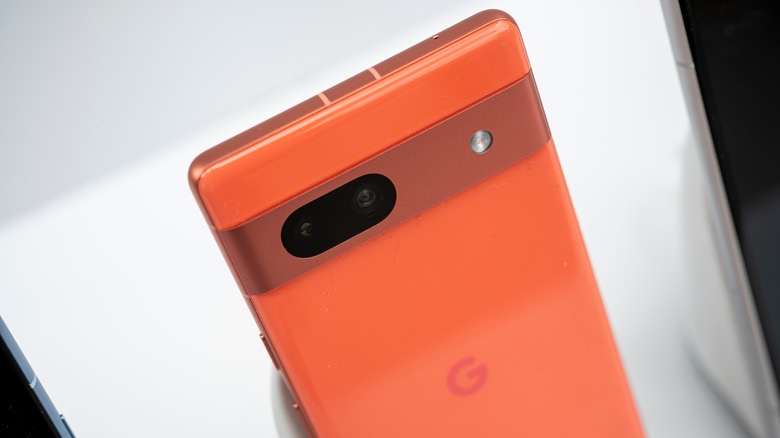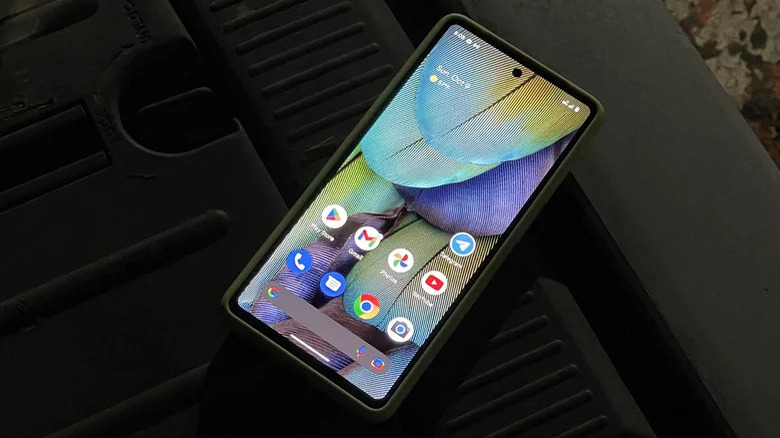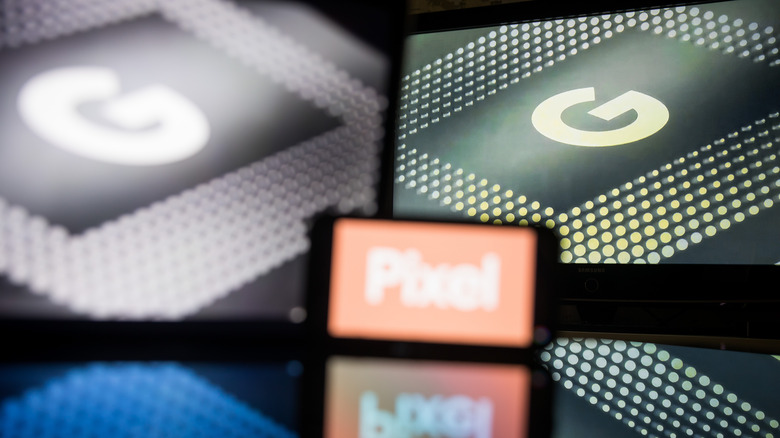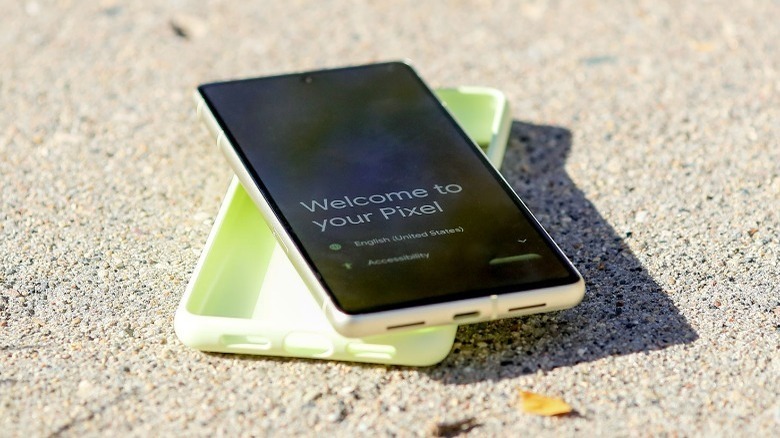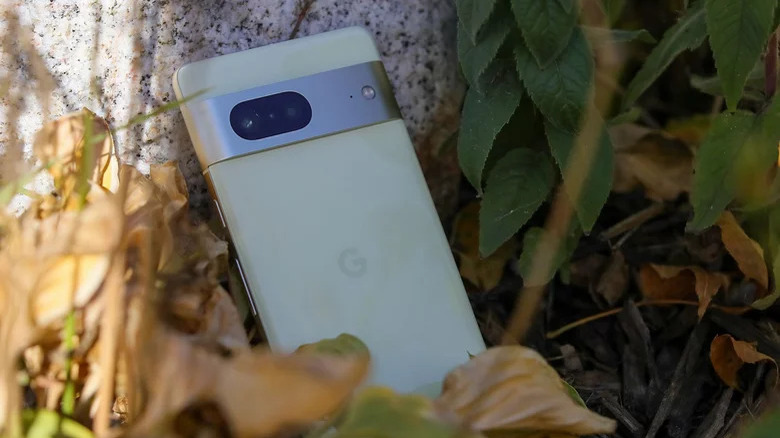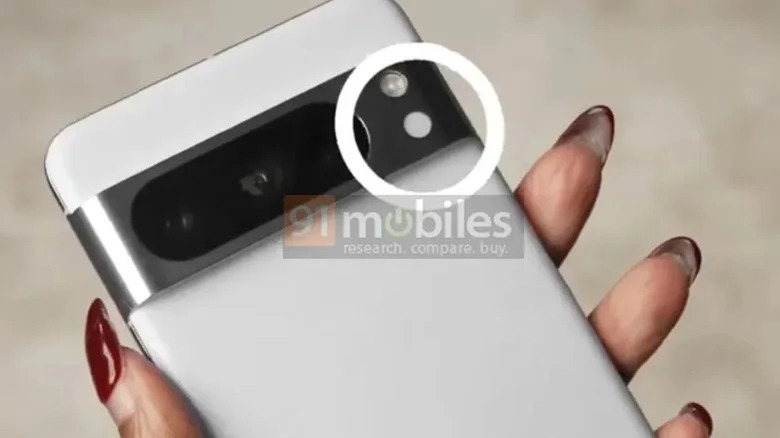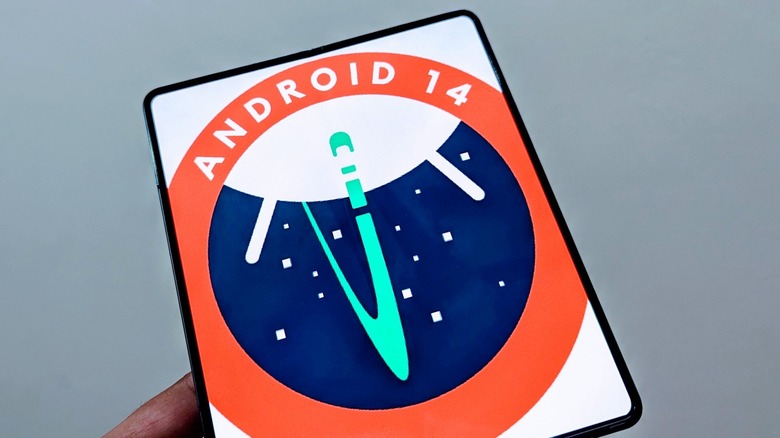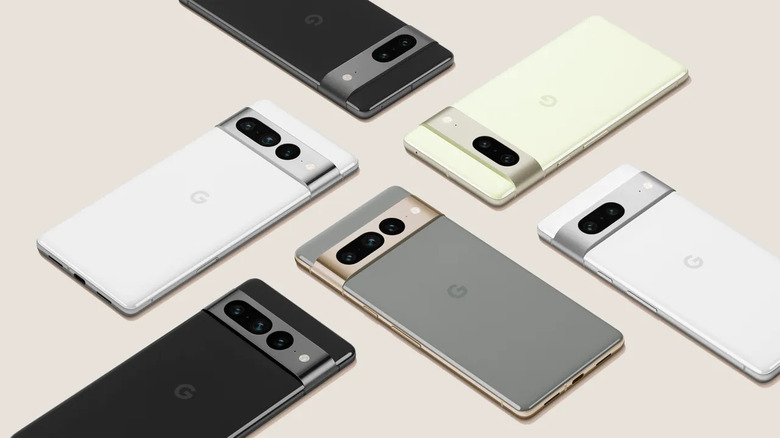Google Pixel 8: Features We Want To See In The Next Android Smartphone
The Pixel 7 is the best entry yet into Google's signature line of smartphones, and it's arguably one of the best-value smartphones on the market right now. It boasts a great screen, an excellent camera, and a bloat-free Android OS, all while undercutting some of its biggest competitors in price.
That said, no smartphone stays on top forever, and the Pixel 7 is no exception. The Pixel 7 was released in October 2022, and since Google tends to release its phones around the same time every year, the Pixel 8 is likely to only be a few short months away from release. In fact, a major leak in March revealed the purported design of the next-gen phone, even if hardware details remain scant for now.
From those leaks, it looks like the Pixel 8 won't be too much of a radical departure from the Pixel 7 in terms of design, although it's reportedly slightly smaller. The hardware and software should boast some notable improvements over the current generation, though — here is what we're hoping to see when the Pixel 8 finally arrives.
120Hz screen
The Pixel 7's AMOLED screen is crisp, vibrant, and bright enough to be usable in near-direct sunlight, but its maximum refresh rate is only 90Hz. Google calls the maximum rate Smooth Display, but a battery-saving option is also available that caps the rate at 60Hz. We found that the battery-saving mode only made a small difference to battery life, so for most people, it's probably worth sticking with 90Hz.
Meanwhile, the Pixel 7 Pro boasts up to 120Hz. That puts the latter in line with most other top-spec flagship phones, and it'd be nice to see the higher refresh rate make its way to the standard Pixel 8 too.
Rivals like the Samsung Galaxy S23 and OnePlus 11 5G already boast adaptive refresh rates up to 120Hz, and even some mid-range phones offer the higher rate. The Pixel 7's spec sheet passes muster for now, but the Pixel 8 risks falling behind if rates are left unchanged when the new phone arrives later this year.
More powerful chip
The Pixel 7's Tensor G2 chip is already plenty fast enough for the average smartphone user, but it's not the best in class overall. The Pixel 8 should be getting a significant upgrade, though, according to a leaked roadmap uncovered in late 2022. It's set to be powered by Google's latest chip, which is reportedly codenamed Zuma. This is very likely to launch as the Tensor G3, although the name remains unconfirmed for now.
The roadmap points to the new chip being launched in both the Pixel 8 and Pixel 8 Pro, although there's no word on actual specs compared to the current-gen hardware. There are rumors that the Tensor G3 should offer performance in line with, or perhaps even ahead of, the Snapdragon 8 Gen 2, but so far, there's little evidence to back up those claims.
Either way, extra performance is always a bonus and the chip upgrade should help bring the Pixel's hardware more closely in line with the best Android devices.
Better battery life
While the battery life of the Pixel 7 is decent, there's room for improvement. Our Pixel 7 review found that real-world battery life was roughly the same as the Pixel 6, with up to two days of usage possible on a single charge. However, streaming hours of video and using 5G caused a noticeable drop in battery life. There's more than enough juice for most users to get through a full day without needing to top up, but unless your usage is particularly light, you'll still need to ensure you charge the phone every night.
That leaves the Pixel 7 in the middle of the pack for battery life, but hopefully the Pixel 8 improves on this to some degree. There have been no rumors or leaks surrounding the next-gen phone's battery so far, although given Google's long history of seeing specs leak well ahead of the official reveal, there's a chance we'll know more over the coming months.
More advanced AI photo processing
A big selling point of the Pixel 7 is Google's excellent photo-processing AI, which does a great job of capturing small details and extracting richness out of any shot you take. Photo Unblur is also a highlight, as it does an impressive job of sharpening up images, but it can only do so much for now. While Face Unblur is only mildly effective at restoring detail, it's still a useful tool to have at your disposal.
Hopefully, the Pixel 8's processing capabilities are even more impressive since Google will have now had ample opportunity to tweak its algorithms even further.
The Pixel 7's suite of processing features was already among the best on the market, but there's fierce competition. There's definitely still room to improve, and there needs to be a noticeable leap in capability if buyers are to have enough reasons to shell out for a Pixel 8 over buying a discounted Pixel 7.
Video Unblur
Alongside improved photo processing, it seems like video processing is the next feature to get Google's AI treatment. The folks over at 9to5Google decompiled the latest version of Google Photos and found a new feature called Video Unblur, although it's not currently functional. Since Photo Unblur debuted on the Pixel 7 as an exclusive feature, it seems likely that Video Unblur will also be a Pixel exclusive that will presumably debut on the upcoming Pixel 8.
Like Photo Unblur, the new feature should make use of machine learning to sharpen and restore detail to blurry video. Photo Unblur is capable of neatening both photos taken with the phone itself and with any older device, so if Video Unblur is just as capable it might be a game changer for anyone looking to bring some much-needed clarity to hastily-captured moments from years ago. However, its true capabilities, as well as its potential exclusivity, remain a mystery for now.
A new, must-have feature
One of the key criticisms we had of the Pixel 7 was that although it improved on the Pixel 6 in almost every way, it lacked any new must-have features that set it apart from other phones. That's not to say every new phone should need to reinvent the wheel as such -– if it ain't broke, don't fix it, and all that. However, convincing buyers to shell out for a new phone that's only slightly better than its predecessor for the second time in a row could be a hard sell in the face of ever-evolving competition.
A leaked video of the Pixel 8 Pro showed off what appeared to be an infrared temperature sensor nestled next to the rear camera, which is certainly an unusual inclusion for a flagship phone. Is it enough of a must-have feature? That remains to be seen, but it seems like an odd choice when other flagships are making headlines for more innately appealing innovations like their exceptionally capable cameras or unprecedented charging speeds.
Of course, it's worth noting that these are only unconfirmed leaks for now — we'll have to wait until official specs emerge to determine what sort of must-have features the Pixel 8 will include.
Close-to-vanilla Android 14
One of the things we like most about the Pixel line is the stripped-back OS, which includes none of the bloatware that other Android smartphone manufacturers often ship with their devices. It's about as close as you can get to vanilla Android, and on the Pixel 7, everything about the OS felt like it was designed for the smartphone and vice versa. Hopefully, this slimmed-down approach remains the same for the Pixel 8 –- something that thankfully seems very likely.
Android 14's first beta launched in April, so it's likely that we'll see the Pixel 8 launched with this latest iteration of the OS. Google claimed at launch that the software offers superior "privacy, security, performance, developer productivity, and user customization." In addition, Pixel owners wanting to try out this early version can try it through Google's developer site. The full version is expected sometime after July, so it's likely the Pixel 8 will be one of the first, if not the first, phone to run it out of the box.
The same competitive pricing
At launch, the Pixel 7 started at $599 for a base-spec 128GB model, while a higher-spec version compatible with AT&T and Verizon's 5G network started at $699. A 256GB version of the phone was also available for $699, although confusingly, there was no option available for both the extra internal storage and AT&T and Verizon support. In the months since launch, it's been frequently discounted to as low as $450, which is a real bargain considering the competition at that price point. In fact, very few phones offered better value for money at those discounted prices.
It's hard to argue with value like that, and Google would do well to stick to the strategy for the Pixel 8. Many Android competitors have seen their MSRPs continue to rise over recent generations, and that could very well work in the Pixel 8's favor if it's just as competitively priced as its predecessor.
